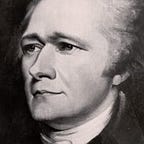Patriotism — What is Love? (Don’t Hurt my Constitution No More)
There are deep and genuine ambiguities about the meaning of ‘patriotism’ and what it means to be ‘a patriot.’ Some will draw a strong contrast between patriotism and nationalism, arguing that while patriotism is a general social good which encourages positive engagement and engenders social utility nationalism is quite the opposite. On such a view, nationalism is its ‘evil twin’ and likely to engender worse evils than merely privileging one’s own country. Other articulations of patriotism embrace some aspects of nationalism willingly: a love of one’s own culture and a sense of belonging to the geography of one’s upbringing and heritage, while rejecting what many identify as the more negative aspects of nationalism.
Patriotism as a concept is deeply ambiguous and these sorts of debates cannot be resolved in the most detailed of philosophical treatises, so they will not be by a blog post. Nonetheless I think there is something informative about the type of disagreement that arises in debates about patriotism that is practically useful and often goes unsaid — the type of question this debate raises.
If patriotism is the love of one’s country then we at least know the most fundamental question we should be asking about it ‘what sort of ‘thing’ is the object of this love?’ That is the philosophical debate as it stands. This debate is unlikely to resolved, but the fact that this is the debate is informative for practical purposes. While it may be ambiguous what the correct object for patriotic affection is, it gives an insight into the type of question we should ask of those who claim to be patriots.
‘What is it you love so much?’
On January the 6th a group of Republican Congressmen and Senators will commit open treason against the Union. They will attack the federalist system of this country in a way which has not occured since the civil war. They will attack the very system that the founders built, and they will do it in the vulgar costume of patriotism for these very figures they feign admiration for. This makes them unlike their seditionist historical antecedents, they are not in tension with the Union and its ideals, rather they are going to attempt to usurp what it means to love that very object — they commit sedition in the name of patriotism. What should not be missed is that because they are patriotic in their seditious actions, they have by extension redefined what the object of love for the patriot is.
For the the object of love is neither the country in some nationalistic sense, if it were then stern rebukes from Mitch McConnell and Pat Toomey would certainly suffice to cause them to see the evil of their actions. No one has, or ever will suggest that these staunch conservatives are ‘a buncha cucks.’ But the djinn is out of the bottle, and these figures no longer have the control over the GOP they once imagined. Why is this? The answer is simple, but with long lasting implications.
Trump has demonstrated to the aspirational members of the GOP that political power can be obtained by unapologetic self-interest.
While all political parties, American or otherwise, suffer from grift on both sides of the political aisles Trump has conclusively demonstrated to many people a mode of ‘patriotism’ that is entirely novel: someone can be a ‘patriot’ by loving themselves. By identifying what ‘America’ is not with its history or its peoples or its institutions, but with himself for his supporters Trump is America and without him it would cease to be. Grifting politicians have observed this fact and realised a dangerous truth, and while Trump may disappear this revelation will not. And its presence may come to obscure genuine and heartfelt debate about how and whether one should be patriotic, how one should respect and respond to the history of one’s country and people. It may replace these genuine and often tense debates with an empty that only a pathological narcissist can create.
A country is not harmed because its citizens love it in different ways or for different reasons, but it is certainly harmed when ‘it’ becomes identified with nothing other than the egos and ends of its worst actors.
